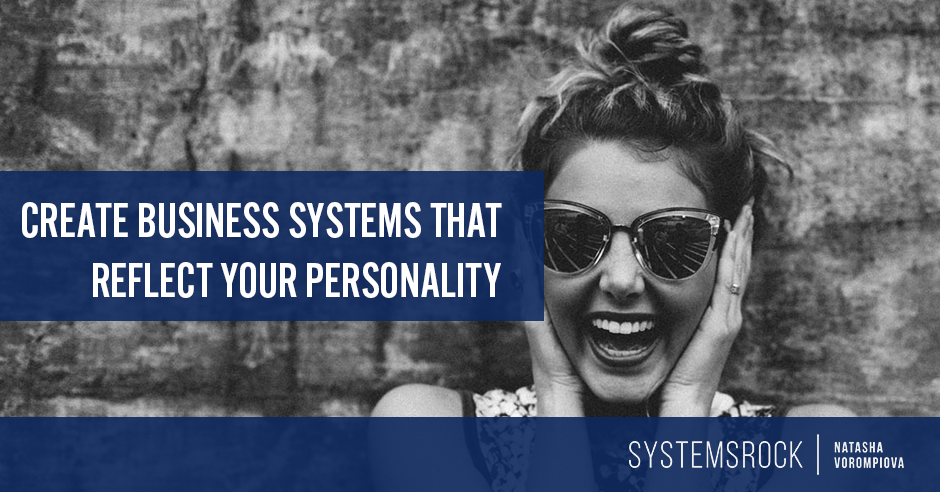If you want to have a business that you love running, creating systems is a must. Systems help you do less busy work and more of the work that matters to you.
However, no two businesses are alike when it comes to which systems to create. This is great news because it means you don’t have to force your business into systems that don’t work for your personality or your business’s demands.
What’s more, when done right, they can help your business stand out from the rest of your industry.
So how do you decide which systems are best for your business?
Three Areas to Evaluate When Creating Systems
1. Your “Quiet Power”
Business strategist, Tara Gentile, has a concept called “quiet power,” which is essentially what makes you unique. When you use that power to organically create your systems, they become more in line with your personality and more effective for your clients.
Let’s take client intake (onboarding) system, for example.
Victoria Prozan, a creativity coach, understands her creative process and is conscious of how to produce results that brand courses, offerings, or services. She takes advantage of her quiet power in this area by modeling her client-intake process in a way similar to what she would do when attempting to find a creative solution.
This has opened up new possibilities and solutions that her clients would have never achieved on their own, and it’s an excellent example of how Victoria uses her quiet power to run a business that fits her and helps her clients get results.
By using your quiet power when constructing your systems, your best features are emphasized, and that diversifies your customer experience and your effectiveness.
2. Your Values
Your business can become your pride and joy when you identify what your core values are and use those as a compass to guide your decisions about how your systems will look like.
Breanne Dyck, a business strategist, has a core value of excellence, and when she created her client-intake process, she knew that excellence would be something her ideal clients would need to value for them to have a successful partnership.
With that in mind, she wrote a survey with specific questions that speak to her value of excellence.
When potential clients answer those questions, she can easily decide whether they’re going to be a good fit or not.
When you use your values to build out your systems, the result is a business that allows you to do your best work with the right people.
3. Your Personality
If you’re the type of person who thrives on interaction, you can build systems focused on the conversation with your community and increasing your following.
If, like me, you’re the type of person who prefers small, intimate, collaborative environments, you’ll want to form systems with an emphasis on developing deeper customer relationships.
Neither decision is wrong or better than the other. All that matters is that you stay true to your personality, so you never feel like you’re chasing the latest method that doesn’t ring true to you.
As a result of using your personality to design your systems, you intentionally build a business that allows you to show up exactly as you are.
Keep Experimenting
If your systems have not been working for you, it’s likely because you’ve been trying to squeeze other people’s approaches into your business. It’s a good practice to lay the foundation for your business trying on the methods of others. But it’s only the start, from which you develop the routines that uniquely suit both your business and personality.
Word of caution. Your system might not be perfect right from the start and will require experimentation. It’s perfectly OK. Even in its imperfection, your system will provide you with the perfect way for YOU to do business in a way that is comfortable for you, effective for your clients, and in a way that nobody else can mimic.
Back to You
Would you like us to look at how your systems can better reflect your personality and business needs together?


